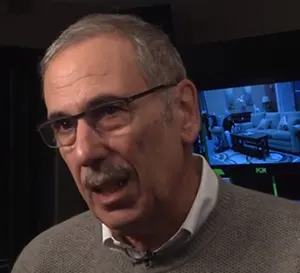Published on: April 7, 2025 at 7:39 pm
By Daniel Butcher
Leading up to the 2024 U.S. election, Democratic candidates needed to do a better job of keeping their fingers on the pulse of American voters and taking their concerns about jobs and the high cost of living seriously, rather than insisting on painting a rosy picture of the economy, according to Academy of Management Scholar Tim Pollock of the University of Tennessee, Knoxville.
Pollock noted a disconnect between Democratic politicians’ messages and what swing voters wanted to hear.
“People are saying, ‘I’m upset about this. This is what I see in my daily life,’ and Democrats talked at a more general, abstract level, saying, ‘It’s really not that bad because of this, that, and the other thing,’ and voters think, ‘Yeah, that’s nice, but that’s not my reality,’” Pollock said. “And so if you really want to influence somebody, especially when they’re having a really strong, visceral, negative emotional response, you have to try to understand where they’re coming from, acknowledge their pain, and talk about where they’re at.
“Even if you can’t come up with a perfect solution or what you’re proposing isn’t going to really be feasible, people are going to feel better if they think they’re acknowledged and recognized,” he said. “That’s similar to what we founding the research study we did about social-media influencers, who are effective at talking about people, saying ‘you’ not ‘me,’ using language that conveys an understanding of where their audience is coming from, and talking to them about their issues—that’s what people want.
“They want to feel seen and heard.”
-
Daniel Butcher is a writer and the Managing Editor of AOM Today at the Academy of Management (AOM). Previously, he was a writer and the Finance Editor for Strategic Finance magazine and Management Accounting Quarterly, a scholarly journal, at the Institute of Management Accountants (IMA). Prior to that, he worked as a writer/editor at The Financial Times, including daily FT sister publications Ignites and FundFire, as well as Crain Communications’s InvestmentNews and Crain’s Wealth, eFinancialCareers, and Arizent’s Financial Planning, Re:Invent|Wealth, On Wall Street, Bank Investment Consultant, and Money Management Executive. He earned his bachelor’s degree from the University of Colorado Boulder and his master’s degree from New York University. You can reach him at dbutcher@aom.org or via LinkedIn.
View all posts
Up next....
Research Findings Are Not Reaching Business Leaders
Source: Shutterstock
By Nick Keppler
There are now about 400 journals for management as an academic field, producing about 12,000 published articles a year in total. However, top decision-makers rarely learn anything from them, said Academy of Management Scholar Herman Aguinis of the George Washington University School of Business.
“Many of us are concerned that the research we do is not being used to the extent that we would like, and it’s called a research-practice gap,” Aguinis said. “Also, there’s a research-policy gap,” stemming from political leaders’ lack of familiarity with research produced in the field of management.
This gap is particularly frustrating, said Aguinis, because scholars on management and organizations have produced a wealth of scientifically sound research on issues that have dominated the news in 2025, including the downsizing of the federal government, the measurement of job performance, discrimination and diversity, equity, and inclusion policies, and the implementation of AI in workplaces.
“If you want to build a bridge, you will talk to the top engineers, but management scholars are not consulted with the same regularity,” said Aguinis.
This is not entirely the fault of those who could potentially benefit from our research, Aguinis added. Academic journals are often insular and publish articles that only make small contributions to our understanding of critical organizational phenomena. Also, the compensation and reward systems motivate academics to write mainly for other academics, not managers, business leaders, and decision-makers.
“For several reasons, much of our research is not aimed at affecting practice,” Aguinis said. “If you read the typical article of, let’s say, 20 pages, you may find one or two paragraphs at the end saying ‘implications for practice.’”
The research is not lost on everyone. A small number of elite companies look to academia to improve performance. Google is well-known for hiring Ph.D. holders, not just for computer-science roles but also for management and creative jobs. Marriott is a sponsor of doctoral development programs.
These companies reap the benefit in reputation, said Aguinis, often appearing in lists such as Fortune Magazine’s “Best Companies to Work For” series.
“All of these companies, all of them, employ Ph.D.s who actually read the research, and they try to implement leadership strategies and management practices that are consistent with what research says aligns with best-practice evidence as published in scholarly journals,” he said.
-
Nick Keppler is a freelance journalist, writer, and editor. He has written extensively about psychology, healthcare, and public policy for The New York Times, The Washington Post, Slate, The Daily Beast, Vice, CityLab, Men’s Health, Mental Floss, The Financial Times, and other prominent publications (as well as a lot of obscure ones). He has also written podcast scripts. His journalistic heroes include Jon Ronson, Jon Krakauer, and Norah Vincent.
Before he went freelance, he was an editor at The Houston Press (which is now a scarcely staffed, online-only publication) and at The Fairfield County Weekly (which is defunct).
In addition to journalism, he has done a variety of writing, editing, and promotional development for businesses and universities, including the University of Pittsburgh and Carnegie Mellon University, and individuals who needed help with writing projects.
View all posts
Up next....
The New Reality: Leaders Have Less Control, Need More Courage
Source: Shutterstock
By Jason Collins
For decades, the prevailing wisdom for business leaders was to stay out of politics. Neutrality was considered the safest, most responsible stance for corporate executives and board members to take. But today that approach is increasingly untenable. From the COIVID-19 pandemic to intensifying political polarization and controversy, leaders now find themselves at the center of public debates whether they choose to engage with them or not.
For leaders, silence is a statement, and political neutrality is no longer a viable option, according to Academy of Management Scholar Wendy Smith of the University of Delaware.
“It used to be that there were checks and balances in the U.S. government,” Smith said. “The market was separate from the state, or companies were separate from the government, and that is no longer the case.”
To survive and thrive in this era when economics and politics collide to sow chaos, Smith said that leaders should “talk about strategizing as a verb rather than having a strategy.” For Smith, this means considering “the conditions that we need to bring a team together to be agile and moving, even as we need to communicate out to our people some sense of security.”
Strategic decisions from supply-chain choices to remote, hybrid, or return-to-office work policies have become flashpoints in boardroom and C-suite conversations and political discourse. Leaders now must navigate complex social, economic, and political terrains, speak out on pressing issues, and align their actions with values that resonate with stakeholders—employees, shareholders, customers, and communities alike.
Companies’ leaders have had to deal with uncertainties for a long time, but Smith said many of their strategies and their organization’s systems are antiquated. According to Smith, nowadays leaders are learning that they need to “communicate to their people, optimize their processes, and cultivate openness in their conversations, but not pretend that there’s certainty of what the future will bring, because that’s just false hope.”
Smith acknowledged that leaders are faced with unique challenges in this current political landscape characterized by dissention, frustration, anger, and unpredictability, making it difficult to navigate socioeconomic volatility.
“One of the consequences of this highly polarized world is that leaders, because of the polarization, are being attacked for polarizing positions,” Smith said.
In this current era, leadership is less about having definitive answers and more about asking incisive questions, listening to a range of perspectives, evaluating various responses to difficult circumstances and controversial issues through an ethical lens, and having the courage of one’s convictions.
“We want leaders who are competent and courageous, not stepping away from that responsibility to take a stand and speak up for what’s right because it is so risky,” Smith said.
-
Daniel Butcher is a writer and the Managing Editor of AOM Today at the Academy of Management (AOM). Previously, he was a writer and the Finance Editor for Strategic Finance magazine and Management Accounting Quarterly, a scholarly journal, at the Institute of Management Accountants (IMA). Prior to that, he worked as a writer/editor at The Financial Times, including daily FT sister publications Ignites and FundFire, as well as Crain Communications’s InvestmentNews and Crain’s Wealth, eFinancialCareers, and Arizent’s Financial Planning, Re:Invent|Wealth, On Wall Street, Bank Investment Consultant, and Money Management Executive. He earned his bachelor’s degree from the University of Colorado Boulder and his master’s degree from New York University. You can reach him at dbutcher@aom.org or via LinkedIn.
View all posts
Up next....
Trump Administration Policies Have Chilling Effects on Academia
Harvard Yard in the winter. Source: Shutterstock
By Paul Friedman
Tighter enforcement of immigration regulations and cuts in research grants under the Trump administration are having negative impacts on academic work in general and on not-for-profit professional associations, including the Academy of Management, in particular.
Academy of Management (AOM) Scholar Peter Bamberger of Tel Aviv University, the president of AOM, says you can see it clearly in the run-up to the AOM’s annual meeting in Copenhagen. Among other issues, there is concern about how the visas of foreign students are being treated by authorities such as U.S. Immigration and Customs Enforcement (ICE).
“A good number of the research papers that have been accepted for presentation come from doctoral students from the United States; many of the doctoral students in the United States are foreign doctoral students; and some of the foreign doctoral students in management in the U.S. are considering the potential costs of leaving the U.S. to present their paper,” Bamberger said.
“We are concerned that some of these foreign Ph.D. students, rather than taking that risk, may opt to stay at their offices in the USA and not present their research, which would obviously be deleterious to our science,” he said.
“It would be very unfortunate if innovative papers and important findings are not presented at the 2025 conference because foreign U.S.-based scholars are concerned about the validity of their visas.”
Bamberger said he doesn’t know any AOM members whose students have been deported, but he does know that some AOM scholars are among those being hit by cuts in federal funding for research.
“Those individuals who had grant money to study diversity, equity, and inclusion—that’s all gone,” Bamberger said. “Those individuals don’t have the grants anymore and as a result, the research stops.
“Now, it’s the right of a government to determine how it wants to allocate funding for research, so I can’t necessarily say that this is something that’s undemocratic or unfair,” he said. “That was the result of the election, but it is having a problematic effect.”
Bamberger said he sees an ironic example of how cuts in research can have unexpected results.
“A lot of that research on DEI is not necessarily pro-DEI,” he said. “For example, my own research on gender and racial pay equity suggests that contemporary policies oriented towards enhancing the equity have significant unintended negative consequences, including compensation compression.
“So when you cut off the funding for all research that mentions certain keywords assumed to be related to DEI, you’re cutting off the funding of people doing research that indicates problems with DEI policy, as well as perhaps supporting policies that may be favored by certain politicians.”
-
Paul Friedman is a journalist who worked for 45 years at the three major news networks. He began as a writer and reporter and then became a producer of major news broadcasts, including Nightly News and the Today show at NBC, and World News Tonight with Peter Jennings at ABC. He also served as Executive VicePresident of News at ABC and CBS. Later, he taught journalism as a professor at Columbia University, New York University, and Quinnipiac University. Friedman is now semi-retired and lives with his wife in Florida.
View all posts
Up next....
How Looming Stagflation May Affect Pay
Source: Shutterstock
By Paul Friedman
At a time when some forecasts predict continuing or worsening inflation or stagflation and possibly a recession, pay transparency adds to the pressure on organizations’ decision-makers.
Peter Bamberger of Tel Aviv University, an Academy of Management scholar who published a book based on his research on pay transparency, said managers will need to build systems of compensation that are more justifiable and understandable to employees.
“The first step with pay transparency is not necessarily to disclose pay levels of one employee or another employee, but rather to disclose how pay is determined in the organization,” Bamberger said. “Most employees have no understanding whatsoever how their pay is determined in the organization and how other people’s pay is determined in the organization.
“Simply understanding pay processes and procedures, all the evidence suggests, has beneficial effects for both employees and employers with very few, if any, side effects—except that employers have to work harder to build these equitable and fair systems.”
Bamberger said pay transparency is always problematic for decision-makers.
“No one wants their decisions to be transparent to other people—transparency is great when we are the observers, but when we’re the observed, it’s a terrible thing,” Bamberger said. “It comes with potentially unintended negative consequences, especially when you have to think about what happens when people see that they are paid less than other people.
“It becomes problematic for the ones making the decisions, and it can be problematic for the organization,” he said. “So there are complications with pay transparency; there’s no question about it.”
Still, Bamberger said he believes that “sunshine is the best antiseptic,” and pay transparency can produce surprising positive results.
“What the evidence shows is that most employees underestimate how much their superiors are making, and when you think about that, it generates a tendency of individuals to think that they’ll do better by leaving their current organization,”
Bamberger said. “The grass is always greener; if I want a pay increase, I have to go outside, and that movement has costs to the current employer.
“So there’s merit, potentially, in letting people see what the potential income might be for moving up within the organization,” he said.
“I think organizations that are forced to be more accountable and hence build more effective pay systems—more explainable and justifiable pay systems—ultimately enhance the quality of the human capital they can bring in and hold to enhance their competitiveness, which becomes really important in a period of stagflation.”
-
Paul Friedman is a journalist who worked for 45 years at the three major news networks. He began as a writer and reporter and then became a producer of major news broadcasts, including Nightly News and the Today show at NBC, and World News Tonight with Peter Jennings at ABC. He also served as Executive VicePresident of News at ABC and CBS. Later, he taught journalism as a professor at Columbia University, New York University, and Quinnipiac University. Friedman is now semi-retired and lives with his wife in Florida.
View all posts
Up next....
Everyone Will Suffer in the Wake of Trump Administration’s Research Cuts
Source: Shutterstock
By Paul Friedman
This year, the Trump administration has fired many government researchers, canceled scientific and medical research grants, and targeted leading universities, including Harvard, with debilitating funding freezes. Fear of reprisal has caused many scientists, doctors, professors, and university administrators to opt for silence instead of speaking up to defend the research that is getting the ox.
Academy of Management (AOM) Scholar Peter Bamberger of Tel Aviv University says much of the research produced by him and his colleagues, including many AOM members, has a day-to-day impact on industry practitioners, including organizational leaders and managers. Cuts in federal funding for research will have a negative impact on industry, as well as researchers, colleges and universities, and other research institutions.
“What we publish in our primary journals have to be both theoretically important and have practical relevance,” Bamberger said. “It’s got to be interesting from a theoretical perspective and intellectual perspective, and it’s got to have some sort of surprising element—going against conventional wisdom—but it also has to translate that surprising finding into something that managers can do something about.
“And there are thousands of organizational consultants who read the findings published in our journals and then translate that into actual practice in organizations,” he said.
Bamberger points out that a great deal of research is specifically aimed at examining current practices by managers and their efficacy. Recently, he published a study of the managerial approach called design thinking, which focuses on understanding clients’ needs and designing innovative solutions.
“Design thinking has been around for about 10 years,” Bamberger said. “It’s an approach to create more innovative ways of boosting learning and finding innovative solutions to common problems or sometimes even really wicked problems.
“It became a fad and a lot of organizations adopted it, but no one ever bothered to actually assess whether or not it has an impact and whether this impact is any greater than other types of learning-oriented interventions, like team building,” he said.
Bamberger and research colleagues designed a field experiment to test the impact of design thinking as a team learning intervention. They compared over time what happens in terms of the efficiency and productivity of teams using different interventions.
“Is design thinking more efficacious than an alternative?” Bamberger said. “And we found out that in fact it is, and we actually demonstrate the mechanism by which it operates and why it’s more effective than other mechanisms.
“So these types of practical implications are useful to managers and to the extent that we don’t have funding necessary to do this type of research, everybody suffers,” he said.
-
Paul Friedman is a journalist who worked for 45 years at the three major news networks. He began as a writer and reporter and then became a producer of major news broadcasts, including Nightly News and the Today show at NBC, and World News Tonight with Peter Jennings at ABC. He also served as Executive VicePresident of News at ABC and CBS. Later, he taught journalism as a professor at Columbia University, New York University, and Quinnipiac University. Friedman is now semi-retired and lives with his wife in Florida.
View all posts
Up next....
Understanding Time to Manage It Better
By Daniel Butcher
Time flies when you’re having fun or in the zone at work, but it crawls when you’re in pain or doing a boring task.
Academy of Management Scholar Abbie Shipp of Texas Christian University, who coauthored an Academy of Management Annals article on that topic with Karen Jansen of North Carolina State University, said that a key element of subjective time is people’s interpretation and perception of time itself.
“Working on the expense report, even 15 minutes probably feels like forever versus 15 minutes in a crisis situation feels like a blink of an eye,” Shipp said. “There are different ways in which we perceive time itself, the units of time, and that shapes how we structure our time.
“That could be things like deadlines—say you asked me, ‘Hey, can you get this to me by Thursday?’” she said. “That may seem like a very long deadline to you, but if I have a very busy week, maybe that feels like that’s way too soon.
“It has implications for how and when we work, especially how we work with each other.”
In Shipp’s and her colleagues’ research on different elements of subjective time, they looked at all the different ways in which people have studied time, and which aspects of it scientists haven’t studied. People who take time to examine how they perceive and interpret time may be able to improve their time management.
“We found was there are many gaps, both in how researchers and practitioners look at time,” Shipp said. “We found many ways in which you can better use your time if you think about it subjectively and not just objectively.”
A sample of Shipp’s AOM research findings:
-
Daniel Butcher is a writer and the Managing Editor of AOM Today at the Academy of Management (AOM). Previously, he was a writer and the Finance Editor for Strategic Finance magazine and Management Accounting Quarterly, a scholarly journal, at the Institute of Management Accountants (IMA). Prior to that, he worked as a writer/editor at The Financial Times, including daily FT sister publications Ignites and FundFire, as well as Crain Communications’s InvestmentNews and Crain’s Wealth, eFinancialCareers, and Arizent’s Financial Planning, Re:Invent|Wealth, On Wall Street, Bank Investment Consultant, and Money Management Executive. He earned his bachelor’s degree from the University of Colorado Boulder and his master’s degree from New York University. You can reach him at dbutcher@aom.org or via LinkedIn.
View all posts
Up next....
Trade Tasks with Coworkers to Increase Meaningfulness
By Daniel Butcher
Many people want to be able to find meaning in their jobs, but fewer stop to take stock of their current roles and whether there’s anything that can be done to make them more meaningful.
Academy of Management Scholar Abbie Shipp of Texas Christian University, who coauthored an Academy of Management Annals article on that topic with Karen Jansen of North Carolina State University, said that too many of us don’t slow down enough to think about the meaning of time at work and how we spend it.
“I don’t think people often stop and reflect about, ‘Is what I’m doing at work meaningful to me?’—not what’s prioritized in my job or for somebody else, but rather, ‘Is what I’m doing in my work meaningful to me personally?’” Shipp said. “Particularly if I have some choice—‘I get to work on this project’ or ‘I get to do this volunteer opportunity’—those things are more or less meaningful to different people, so finding ways to increase those activities can shape how meaningful your job is and help you to move away from meaningless tasks.
“Maybe do reports at your low-energy time of day, but do the meaningful activities at the time when you’re most productive and can most take them in. Then your work feels more fulfilling because you’re really synchronizing those things,” she said. “You also can offshoot or delegate things that you don’t find meaningful—quite frankly, I’ve done this with colleagues—you trade or swap tasks with somebody that you work with; maybe they do find those things meaningful, and so we can do a swap of job activities.
“Maybe I join a committee because it gives me a lot of meaning and I love it but that you think is not very meaningful, and vice versa.”
A sample of Shipp’s AOM research findings:
-
Daniel Butcher is a writer and the Managing Editor of AOM Today at the Academy of Management (AOM). Previously, he was a writer and the Finance Editor for Strategic Finance magazine and Management Accounting Quarterly, a scholarly journal, at the Institute of Management Accountants (IMA). Prior to that, he worked as a writer/editor at The Financial Times, including daily FT sister publications Ignites and FundFire, as well as Crain Communications’s InvestmentNews and Crain’s Wealth, eFinancialCareers, and Arizent’s Financial Planning, Re:Invent|Wealth, On Wall Street, Bank Investment Consultant, and Money Management Executive. He earned his bachelor’s degree from the University of Colorado Boulder and his master’s degree from New York University. You can reach him at dbutcher@aom.org or via LinkedIn.
View all posts
Up next....
Why Doing Meaningful Work Makes Time Fly
By Daniel Butcher
“When you sit with a nice girl for two hours, it seems like two minutes; when you sit on a hot stove for two minutes, it seems like two hours. That’s relativity.” —Albert Einstein
When people talk about time at work, they usually don’t think about subjective time, how we perceive time differently, for example, at work vs. on vacation, noted Academy of Management Scholar Abbie Shipp of Texas Christian University, who coauthored an Academy of Management Annals article on that topic with Karen Jansen of Henley Business School.
“A key to understanding subjective time is thinking about how people interpret time itself—workers often ask themselves, ‘Is there meaning in what I’m doing? Where is this leading me?’” Shipp said. “Expense reports feel meaningless, and most people consider them to be a waste of time, as opposed to, ‘I worked on this big project—it’s going to save lives, for example, if you’re in the medical community.’
“So the same amount of time spent on one sort of task or project vs. another can feel different and have different meaning, and that interpretation of time is really important for how people think and feel about their job and career,” she said.
“Leaders need to consider this different view of time when engaging their teams.”
A sample of Shipp’s AOM research findings:
-
Daniel Butcher is a writer and the Managing Editor of AOM Today at the Academy of Management (AOM). Previously, he was a writer and the Finance Editor for Strategic Finance magazine and Management Accounting Quarterly, a scholarly journal, at the Institute of Management Accountants (IMA). Prior to that, he worked as a writer/editor at The Financial Times, including daily FT sister publications Ignites and FundFire, as well as Crain Communications’s InvestmentNews and Crain’s Wealth, eFinancialCareers, and Arizent’s Financial Planning, Re:Invent|Wealth, On Wall Street, Bank Investment Consultant, and Money Management Executive. He earned his bachelor’s degree from the University of Colorado Boulder and his master’s degree from New York University. You can reach him at dbutcher@aom.org or via LinkedIn.
View all posts
Up next....
An Overlooked Challenge of RTO Mandates
By Daniel Butcher
It may be counterintuitive, but if leaders and managers are willing to be more flexible in how employees manage their own time, then they may get more productivity out of them. That goes against the grain as the U.S. federal government, tech giants including Amazon, Apple, Google, and Microsoft, and financial-services titans including J.P. Morgan Chase, Citigroup, Goldman Sachs, and BlackRock have all issued return-to-office (RTO) mandates.
Academy of Management Scholar Abbie Shipp of Texas Christian University, who coauthored an Academy of Management Annals article on the how we experience time with Karen Jansen of North Carolina State University, said that the subjective nature of how we perceive time and the variance of which hours people are most productive at work are factors that contribute to the “square-peg-in-a-round hole” awkwardness of requiring employees to be in the office five days every week from nine to five.
“That’s why things like the return-to-office mandates can be challenging. Even things as simple as saying, ‘We’ll do a hybrid schedule, but you’ll need to be in the office during these hours on these days of the week; here’s when we’ll be back,’” Shipp said.
“That assumes that schedule works for everyone, and it’s hard to meet individual needs while you impose collective schedules,” she said. “That doesn’t mean that we shouldn’t think about it; it means, in fact, we should think about it more–but it takes a lot of talent to do this.”
People appreciate flexibility
“First of all, we have to be aware that people need individual flexibility, so from a leadership perspective, we have to start asking employees, ‘What do you value? When do you like to work? What’s meaningful to you? What’s your background about time management?’” Shipp said.
“I don’t think a lot of leaders do that, because if they don’t know their own personal views and uses of time, they’re certainly not assuming that employees are different from them,” she said.
“My research would indicate that individuals could be very different about people’s scheduling preferences and time-management habits, yet leaders make those assumptions and never have them become explicit.”
A sample of Shipp’s AOM research findings:
-
Daniel Butcher is a writer and the Managing Editor of AOM Today at the Academy of Management (AOM). Previously, he was a writer and the Finance Editor for Strategic Finance magazine and Management Accounting Quarterly, a scholarly journal, at the Institute of Management Accountants (IMA). Prior to that, he worked as a writer/editor at The Financial Times, including daily FT sister publications Ignites and FundFire, as well as Crain Communications’s InvestmentNews and Crain’s Wealth, eFinancialCareers, and Arizent’s Financial Planning, Re:Invent|Wealth, On Wall Street, Bank Investment Consultant, and Money Management Executive. He earned his bachelor’s degree from the University of Colorado Boulder and his master’s degree from New York University. You can reach him at dbutcher@aom.org or via LinkedIn.
View all posts
Up next....
There’s More than One Way to Manage Time Effectively
By Daniel Butcher
While managers often set rigid work schedules, to-do lists, and deadlines, more flexibility can enable workers to prioritize tasks in ways that help them manage their time more effectively.
Academy of Management Scholar Abbie Shipp of Texas Christian University, who coauthored an Academy of Management Annals article on the subjective experience of time with Karen Jansen of North Carolina State University, said that there’s no one-size-fits-all method of time management that’s effective for everyone.
“Our research on how people perceive and interpret time makes us stop and question fixed time-management suggestions: ‘Start your day in this way,’ or ‘Work at this pace and do these things,’ or ‘Here’s how you focus 100% of the time,’” Shipp said. “Those hacks can be great if you need them, but for some people, that’s not what they need.
“For many people, quite frankly, what we need is more thought into questions like, ‘What do I subjectively perceive about time, and where did I get my understanding of time?’” she said.
Shipp said that she began thinking about how work influences our perception of time when looking at her parents’ schedules, as well as her own early work experiences.
“My dad was a banker, so he had bankers’ hours, and then my very first job was at a government facility where we had to track our time to the 10th of an hour and charge it to different accounts, so I became really aware of time,” Shipp said. “It’s hard for me to step away from the office at three o’clock, because I think, ‘Nope, this time must be allocated in this way until after five o’clock.’
“When we start to question those socialization influences, we say, ‘Is this assumption about time helping me or is this harming me?’” she said. “That’s what subjective time brings in, the awareness of different ways to perceive the passage and meaning of time in concert with objective time: clocks, calendars, and schedules.
“If we think of time subjectively, we can better manage our time and our energy in ways that are fulfilling and productive, both for our work and for ourselves.”
A sample of Shipp’s AOM research findings:
-
Daniel Butcher is a writer and the Managing Editor of AOM Today at the Academy of Management (AOM). Previously, he was a writer and the Finance Editor for Strategic Finance magazine and Management Accounting Quarterly, a scholarly journal, at the Institute of Management Accountants (IMA). Prior to that, he worked as a writer/editor at The Financial Times, including daily FT sister publications Ignites and FundFire, as well as Crain Communications’s InvestmentNews and Crain’s Wealth, eFinancialCareers, and Arizent’s Financial Planning, Re:Invent|Wealth, On Wall Street, Bank Investment Consultant, and Money Management Executive. He earned his bachelor’s degree from the University of Colorado Boulder and his master’s degree from New York University. You can reach him at dbutcher@aom.org or via LinkedIn.
View all posts














